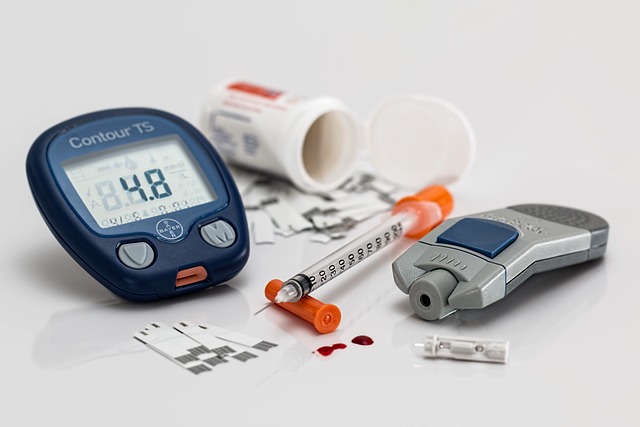Obesity is a complex, multifactorial condition influenced by genetics, environment, lifestyle, and biology. Among these factors, hormones play a pivotal role in regulating body weight, appetite, metabolism, and fat storage. Disruptions in hormonal balance can contribute to weight gain, making it difficult to lose or maintain a healthy weight. Understanding how hormones interact with the body’s systems provides valuable insights into the underlying causes of obesity and informs strategies for prevention and treatment.
What Are Hormones?
Hormones are chemical messengers produced by the endocrine system that regulate various bodily functions, including growth, reproduction, energy balance, and stress response. When it comes to obesity, certain hormones directly influence hunger, satiety, fat storage, and metabolic rate. Imbalances in these hormones can create a cascade of effects that predispose individuals to weight gain or hinder weight loss efforts.
Key Hormones Involved in Obesity
1. Insulin
Insulin, secreted by the pancreas, regulates blood sugar levels by facilitating the uptake of glucose into cells for energy or storage. It also plays a critical role in fat metabolism. Chronic overconsumption of sugary and processed foods can lead to insulin resistance—a condition where cells no longer respond effectively to insulin. This results in elevated blood sugar levels and increased fat storage, particularly around the abdomen.
- Impact on Obesity : Insulin resistance is closely linked to type 2 diabetes and is a major contributor to obesity. High insulin levels promote lipogenesis (fat production) and inhibit lipolysis (fat breakdown), exacerbating weight gain.
2. Leptin
Leptin, produced by fat cells, signals the brain—specifically the hypothalamus—to suppress appetite and increase energy expenditure. In theory, higher leptin levels should reduce hunger and prevent overeating. However, many obese individuals develop leptin resistance , where the brain no longer responds to leptin signals despite high circulating levels.
- Impact on Obesity : Leptin resistance leads to persistent hunger, reduced calorie burning, and difficulty losing weight, creating a vicious cycle of overeating and weight gain.
3. Ghrelin
Often referred to as the “hunger hormone,” ghrelin is released primarily by the stomach and stimulates appetite. Its levels rise before meals and decrease after eating. In people with obesity, ghrelin levels may remain elevated even after consuming food, leading to constant cravings and overeating.
- Impact on Obesity : Dysregulated ghrelin signaling can sabotage weight loss efforts by increasing hunger and reducing feelings of fullness.
4. Cortisol
Cortisol, known as the “stress hormone,” is released by the adrenal glands in response to stress. While short-term cortisol spikes are normal, chronic stress can lead to persistently high cortisol levels. Elevated cortisol promotes fat storage, particularly visceral fat (the dangerous fat around internal organs), and increases appetite for calorie-dense foods.
- Impact on Obesity : Chronic stress and high cortisol levels are strongly associated with abdominal obesity, insulin resistance, and metabolic syndrome.
5. Thyroid Hormones
The thyroid gland produces hormones like thyroxine (T4) and triiodothyronine (T3), which regulate metabolism—the rate at which the body burns calories. Hypothyroidism, or an underactive thyroid, slows down metabolic processes, leading to weight gain and difficulty losing weight.
- Impact on Obesity : Even mild hypothyroidism can contribute to obesity by lowering basal metabolic rate and reducing energy expenditure.
6. Estrogen
Estrogen, a primary female sex hormone, influences fat distribution and metabolism. Fluctuations in estrogen levels during puberty, pregnancy, menopause, or hormonal disorders (e.g., polycystic ovary syndrome, or PCOS) can affect body composition. Low estrogen levels are often associated with increased abdominal fat, while excess estrogen can lead to water retention and weight gain.
- Impact on Obesity : Hormonal imbalances related to estrogen dysregulation are common contributors to obesity in women.
7. Testosterone
Testosterone, predominantly a male hormone but also present in smaller amounts in women, supports muscle mass, bone density, and fat metabolism. Low testosterone levels are linked to decreased muscle mass, reduced metabolic rate, and increased fat accumulation, particularly in the abdominal area.
- Impact on Obesity : Both men and women with low testosterone levels may struggle with weight gain and find it harder to lose weight.
8. Peptide YY (PYY) and Cholecystokinin (CCK)
These hormones are released by the intestines after eating and promote feelings of fullness and satisfaction. Obese individuals often have lower levels of PYY and CCK, impairing their ability to feel satiated after meals.
- Impact on Obesity : Reduced satiety signaling can lead to overeating and excessive calorie intake.
How Hormonal Imbalances Contribute to Obesity
Hormonal imbalances disrupt the delicate interplay between appetite regulation, energy expenditure, and fat storage. For example:
- Increased Hunger : Elevated ghrelin and leptin resistance drive overeating.
- Slowed Metabolism : Low thyroid hormones and testosterone reduce calorie burning.
- Fat Storage : High insulin and cortisol promote the accumulation of adipose tissue.
- Cravings for Unhealthy Foods : Stress-induced cortisol spikes trigger cravings for sugary, fatty foods.
These hormonal disruptions create a feedback loop that perpetuates weight gain and makes weight loss challenging.
Addressing Hormonal Imbalances to Combat Obesity
While lifestyle changes alone cannot always resolve hormonal imbalances, they form the foundation of any effective weight management plan. Here are some strategies to address hormonal contributors to obesity:
1. Balanced Nutrition
- Focus on whole, unprocessed foods rich in fiber, protein, and healthy fats to stabilize blood sugar and support hormone balance.
- Limit refined carbohydrates and added sugars to prevent insulin spikes.
- Incorporate anti-inflammatory foods like leafy greens, nuts, seeds, and fatty fish to combat cortisol-driven inflammation.
2. Regular Physical Activity
Exercise improves insulin sensitivity, boosts metabolism, and enhances the production of hormones like testosterone and growth hormone. Strength training, in particular, helps build lean muscle mass, which increases resting metabolic rate.
3. Stress Management
Chronic stress wreaks havoc on hormones like cortisol and ghrelin. Practices such as meditation, yoga, deep breathing exercises, and adequate sleep can help manage stress and restore hormonal equilibrium.
4. Prioritize Sleep
Sleep deprivation disrupts hormones like leptin, ghrelin, and cortisol, leading to increased hunger and cravings. Aim for 7-9 hours of quality sleep per night to support hormonal health.
5. Medical Interventions
For individuals with diagnosed hormonal disorders, medical treatments may be necessary. Examples include:
- Thyroid hormone replacement therapy for hypothyroidism.
- Medications to improve insulin sensitivity (e.g., metformin).
- Hormone replacement therapy for menopausal women or those with PCOS.
6. Gut Health Optimization
The gut microbiome influences hormone production and regulation. Consuming probiotics, prebiotics, and fermented foods can support gut health and indirectly impact hormonal balance.
The Bigger Picture: A Holistic Approach
Obesity is rarely caused by a single factor; rather, it arises from a combination of genetic, environmental, and hormonal influences. Addressing hormonal imbalances requires a holistic approach that considers diet, physical activity, mental health, and medical care. Personalized interventions tailored to an individual’s unique hormonal profile can yield better outcomes than generic weight loss programs.

